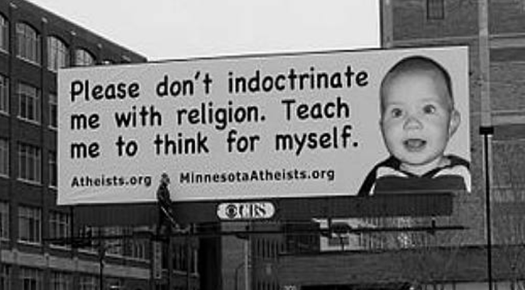
The Pew Research Center’s Religious Landscape Survey showed that atheists make 3.1% of the population. In addition, we can see a growing number of Americans who have no religious affiliation at all and make 22.4% of the population. Gallup also regularly asks the question point blank — “Do you believe in God?” The last time it asked, in 2016, 10 percent of respondents said no.
Many people in America don’t think of themselves as atheists because they were raised in Christian families. Other ones just don’t want to be labeled as atheists because that word is considered as something wrong, even in our increasingly secular society.
The results Will Gervais and Maxine Najle have obtained are awaiting publication in the journal Social Psychological and Personality Science. Gervais and Najle concluded the number of people who do not believe in God may be even double that counted by leading polling firms such as Pew and Gallup.
“There are a lot of atheists in the closet,” Gervais says. “And ... if they knew there are lots of people just like them out there that could potentially promote more tolerance.” “We shouldn’t expect people to give a stranger over the phone an honest answer to that question (Do you believe in God),” Gervais says.
The Vox‘s Brian Resnick explained in his article the method the researchers used to find “closet atheists.”
The first condition asked participants to read through a bunch of statements like, “I am a vegetarian,” “I own a dog,” and, “I have a dishwasher in my kitchen.” All the participants had to do was simply write down the number of statements that were true for them.
The value of this method is that participants don’t have to directly say, “I am a vegetarian,” or, “I’m a dog owner” — they only have to acknowledge the number of statements that apply to them. That alone should zero out any embarrassment or hesitance to admit to a particular item.
That’s important because the other 1,000 or so participants saw the exact same list — but with one statement added: “I believe in God.” By comparing the responses between the two groups, Gervais and Najle could then estimate how many people don’t believe in God.
“We can say with a 99 percent probability that it’s (who does not believe in God) higher than [11 percent],” said Gervais. Gervais and Najle also concurrently replicated the study with a second sample of 2,000 participants, and got similar results.

Although this method isn’t perfect, Gervais and Najle still think their measure is valid. The main problem about this kind of surveys is that the relation to the faith couldn’t be judged by only one question - “Do you believe in God?” Many of us have a complicated relationship with religion. There are plenty of people celebrating Easter and Passover this week not because they have devout faith, but because it’s a cultural tradition they cherish and identify with.
Photo Credits: Wikimedia
